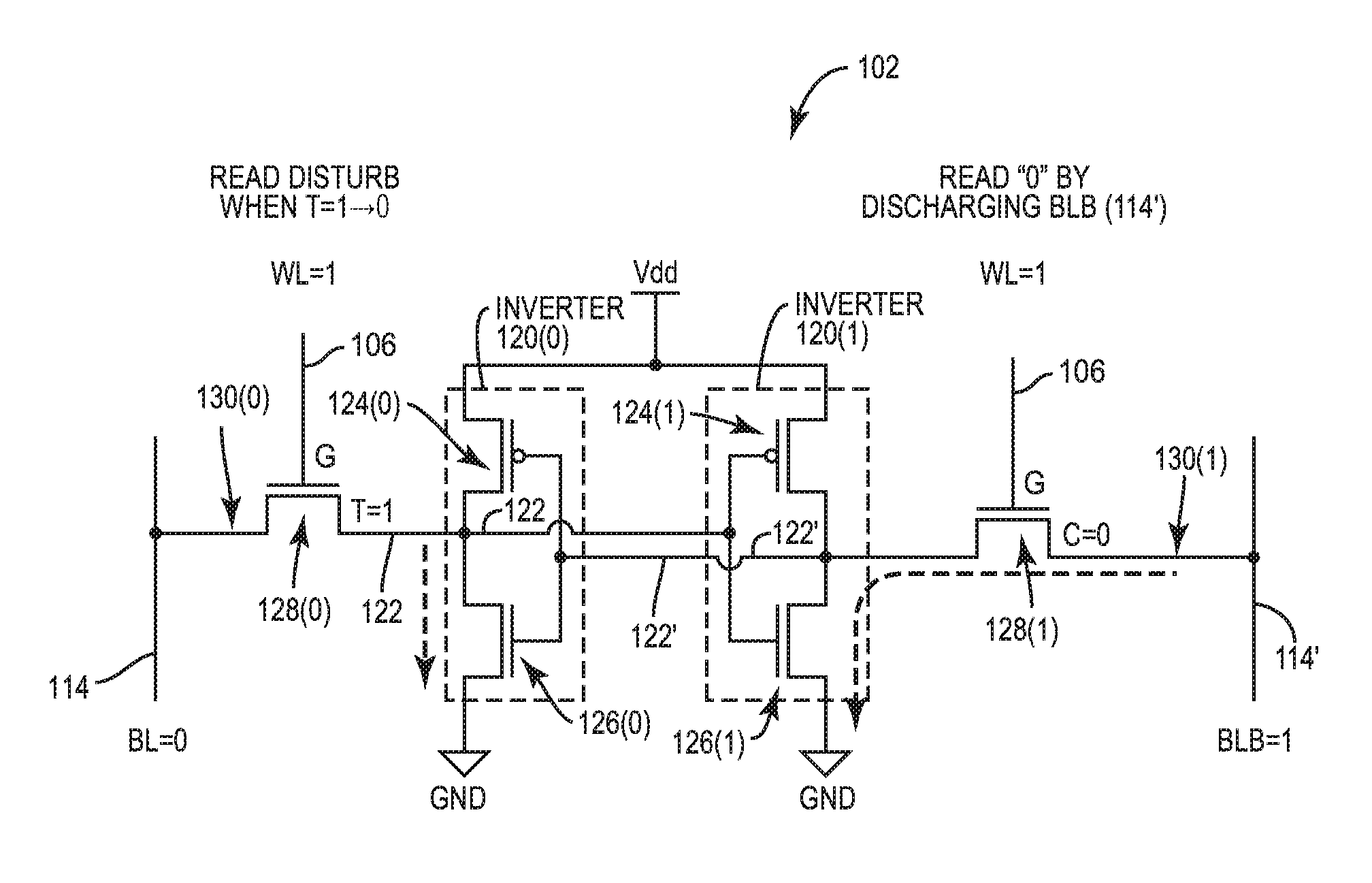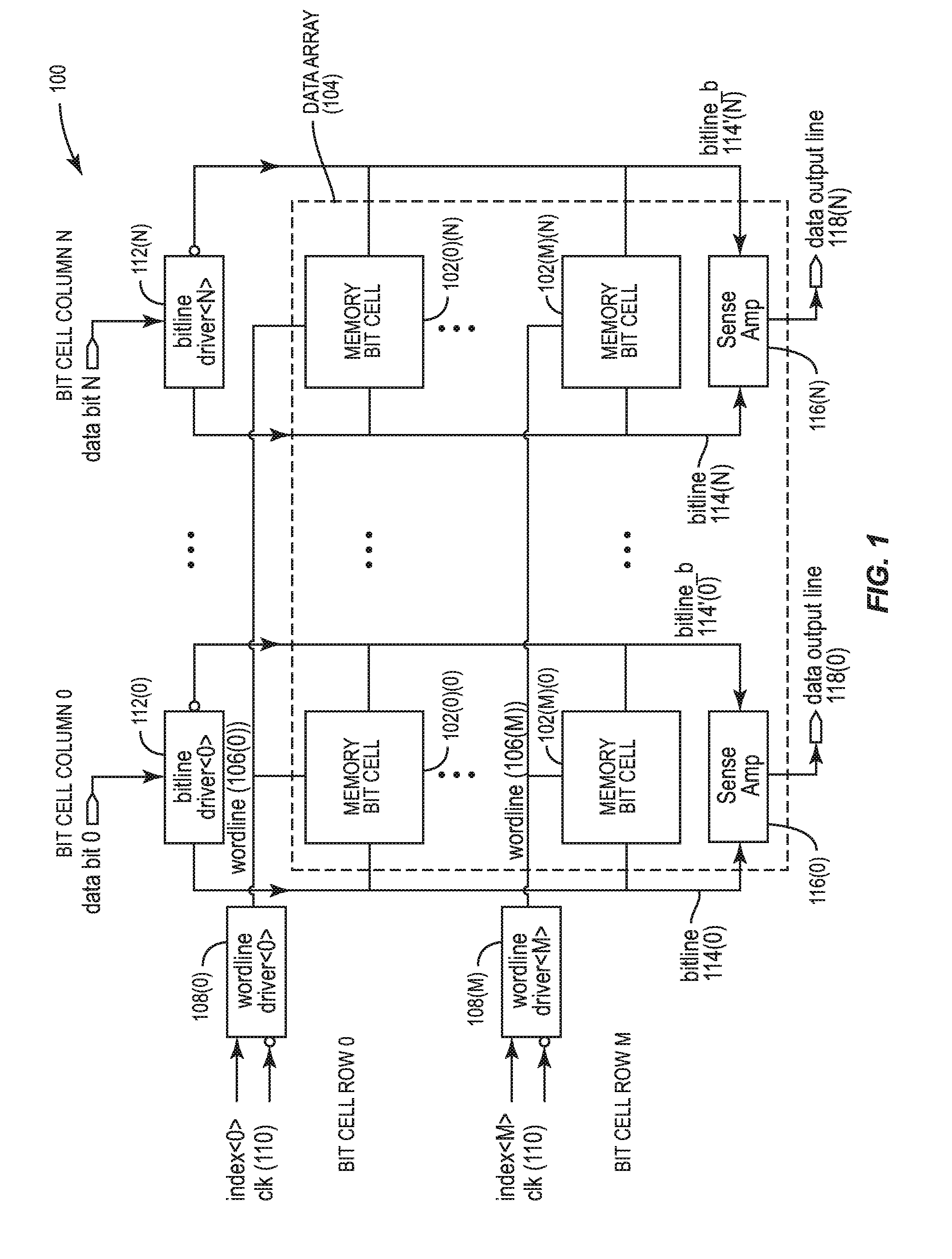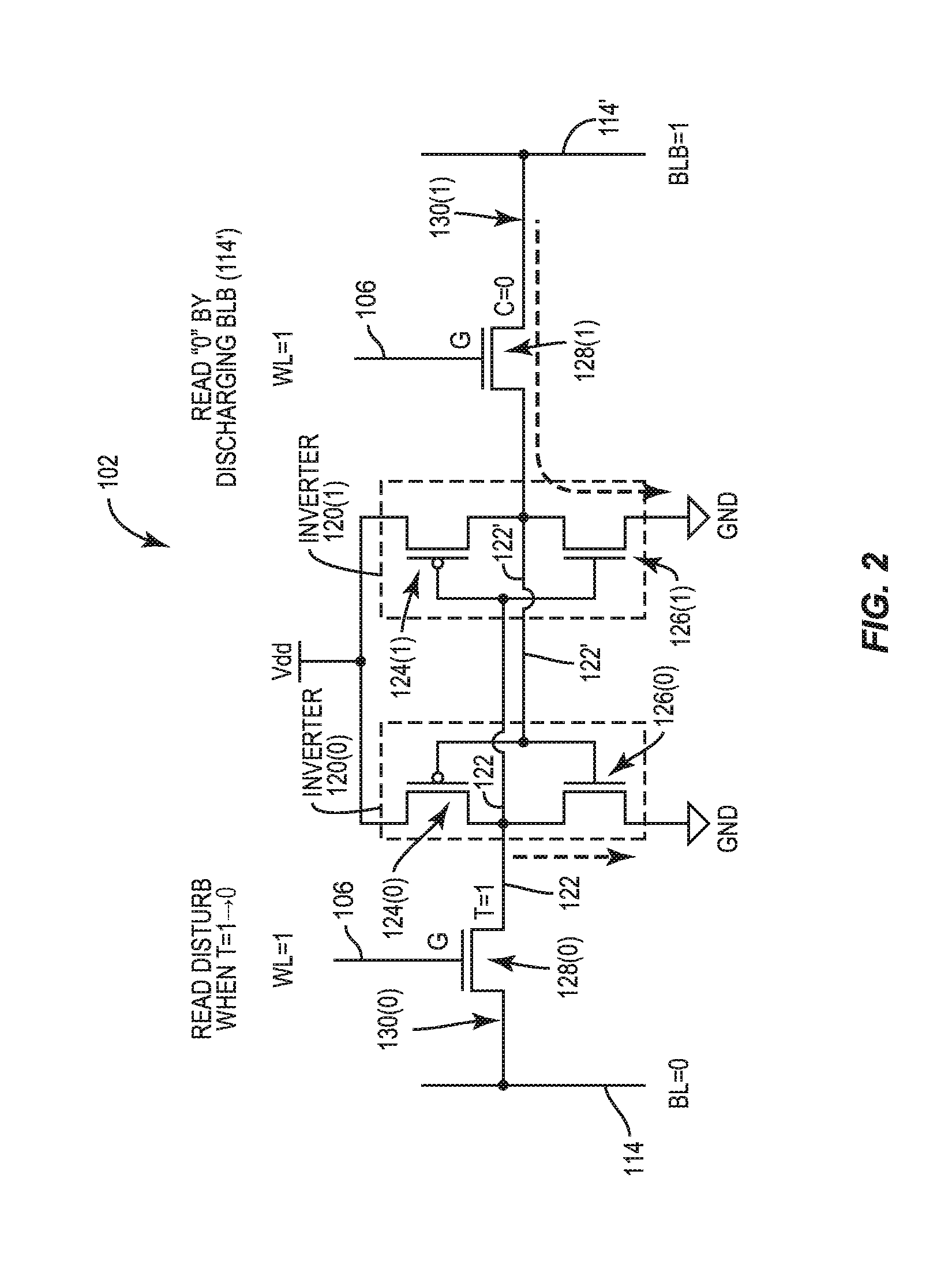Wordline negative boost write-assist circuits for memory bit cells employing a p-type field-effect transistor (PFET) write port(s), and related systems and methods
a write-assist circuit and memory bit cell technology, applied in the memory field, can solve the problems of achieve the effects of reducing memory write times, improving memory performance, and reducing the effective mass of charge carriers
- Summary
- Abstract
- Description
- Claims
- Application Information
AI Technical Summary
Benefits of technology
Problems solved by technology
Method used
Image
Examples
Embodiment Construction
[0028]With reference now to the drawing figures, several exemplary aspects of the present disclosure are described. The word “exemplary” is used herein to mean “serving as an example, instance, or illustration.” Any aspect described herein as “exemplary” is not necessarily to be construed as preferred or advantageous over other aspects.
[0029]Memory bit cells are provided in a data array of a memory system in a processor-based system to store data. As shown in a graph 400 in FIG. 4, it has been observed that as node technology is scaled down in size, P-type Field-Effect Transistor (PFET) drive current (i.e., drive strength) exceeds N-type Field-Effect transistor (NFET) drive current for like-dimensioned FETs. This is due to the introduction of strained silicon in FET fabrication to reduce the effective mass of charge carriers. As illustrated in FIG. 4, the technology node size in nanometers (nm) is provided on an X-axis 402. The ratio of a saturation drain current of a PFET (IDSAT, N...
PUM
 Login to View More
Login to View More Abstract
Description
Claims
Application Information
 Login to View More
Login to View More - R&D
- Intellectual Property
- Life Sciences
- Materials
- Tech Scout
- Unparalleled Data Quality
- Higher Quality Content
- 60% Fewer Hallucinations
Browse by: Latest US Patents, China's latest patents, Technical Efficacy Thesaurus, Application Domain, Technology Topic, Popular Technical Reports.
© 2025 PatSnap. All rights reserved.Legal|Privacy policy|Modern Slavery Act Transparency Statement|Sitemap|About US| Contact US: help@patsnap.com



